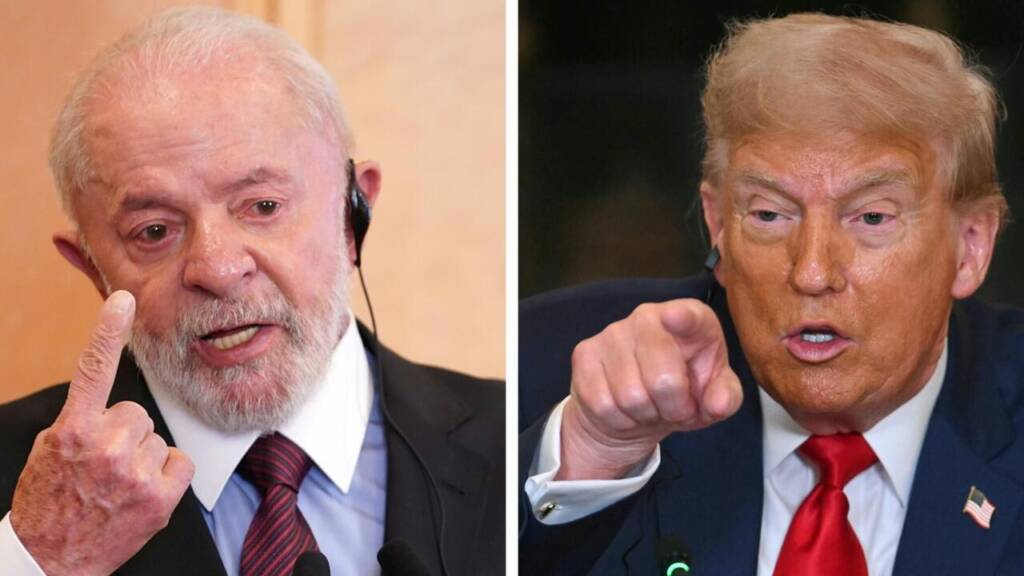During a Workers’ Party gathering in Brasília on August 3, 2025, President Luiz Inácio Lula da Silva declared that Brazil “won’t forget that the United States helped stage a coup,” while rejecting what he labeled as U.S. economic blackmail
Speaking out against the announcement of a 50 % tariff on Brazilian exports by the Trump administration—ostensibly in protest against the prosecution of former president Jair Bolsonaro—Lula insisted that using political disputes as grounds for economic sanctions is entirely unacceptable.
Brazil responded to the tariffs by vowing reciprocal action under its Economic Reciprocity Law, marking a clear refusal to accept what Lula labeled “tutelage.” Senior officials including Vice President Geraldo Alckmin and Foreign Minister Mauro Vieira formally protested to U.S. counterparts. Markets reacted to uncertainty, Brazil’s diversified trade relationships—especially with China—appear to cushion the impact.
Mass Mobilization: Protests Across Brazil
On August 3, supporters of former President Jair Bolsonaro staged demonstrations across at least 23 cities, demanding amnesty for those detained after the January 8, 2023 attacks in Brasília and condemning Justice Alexandre de Moraes and President Lula. Protesters wore nationalist jerseys, displayed pro‑Trump flags, and chanted “Magnitsky”
Reports confirmed coordinated rallies in São Paulo, Rio de Janeiro, Brasília, and other capitals
In São Paulo, protesters gathered outside the U.S. consulate, burning effigies of both Trump and Bolsonaro and denouncing external interference.
Bolsonaro supporters framed their protests as resistance to what they see as judicial overreach and political persecution, especially citing the legal actions against allies linked to the 2023 Brasília riots.
Justice Alexandre de Moraes, personally targeted by U.S. sanctions, reaffirmed the court will proceed undeterred with Bolsonaro’s trial. He emphasized Brazil’s judiciary will not bow to external influence.
Rather than weakening Lula’s standing, the tariffs and protests appear to be rallying support behind him. Polls suggest rising approval ratings and stronger resolve around national sovereignty
Historical Context: US Role in Past Brazilian Coups
Lula is seemingly frustartedcwith what he currently sees as contrived protests. He also did not specify whether he was referring to the 1964 Operation Brother Sam, the 2016 impeachment of Dilma Rousseff, or Bolsonaro’s post‑2022 coup attempts, but emphasized Brazil’s refusal to accept unequal treatment and threatened retaliation if economic coercion continued.
The remark recalled long-standing allegations of U.S. involvement in Brazil’s political crises:
In 1964, declassified documents indicate the U.S. provided covert support to military plotters, including early recognition of the new regime, arms shipments, and IMF-backed loans
Critics also view Brazil’s 2016 impeachment of Dilma Rousseff—and the related Operation Car Wash investigations—as encouraged by foreign political interests aligned with Washington.
Positioning himself as a champion of Brazilian sovereignty, Lula has argued:
“A small country negotiating with the United States is like a factory worker with 80,000 coworkers negotiating alone with the boss.”
He reiterated that Brazil seeks negotiations on equal terms, highlighting its growing global economic ties and declining dependence on Washington. These moves by the US seem to sending Brazil even closer towards BRICS and China. With the Trump tariffs and these protests that Lula believes are not natural, Washington risks alienating Brazil completely destroying goodwill and trust factor. Brazil is the biggest country in South America with huge resources, US will slowly be replaced by China in most projects if this kind of economic coercion continues.
